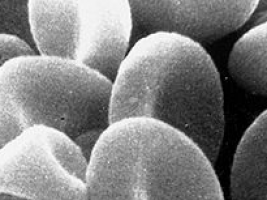
BioInvent International (OMXS: BINV) and Cancer Research UK, Cancer Research Technology (CRT), the charity’s development and commercialisation arm, and Leukaemia & Lymphoma Research (LLR) are taking its investigational drug, BI-1206, into a collaborative phase I/II trial for patients with chronic lymphocytic leukaemia (CLL) and non-Hodgkin lymphoma (NHL).
BI-1206 is a fully-human anti-CD32b antagonistic antibody that in addition to directly killing tumour cells is thought to work by maintaining CD20 antibodies on the cell membrane of cancer cells, preventing them from becoming resistant to the current state-of-the-art treatment, rituximab.
The antibody has shown promise both in combination with CD20 antibodies and as a single agent in chronic lymphocytic lymphoma (CLL) and other types of NHL, in an extensive package of preclinical studies carried out by Leukaemia & Lymphoma Research-funded scientists at the University of Southampton.
The potential development opportunity for BI-1206 may extend well beyond NHL.
The open label Phase I/ll study will enrol between 50 and 60 patients who will receive either BI-1206 alone or BI-1206 in combination with rituximab.
The study will primarily enroll CLL patients but smaller cohorts of patients with other types of NHL, such as mantle cell lymphoma, follicular lymphoma and diffuse large B-cell lymphoma, may also be recruited.
The study is expected to commence in the second half of 2015.
Each year in the UK approximately 12,800 people are diagnosed with NHL, including 3,200 people diagnosed with CLL.
In Europe and North America 164,300 people are diagnosed with NHL yearly, of which approximately 35,000 people are diagnosed with CLL.
It is estimated that more than 56,000 people die from these cancers each year in Europe and North America.
Professor Chris Bunce, Research Director at Leukaemia & Lymphoma Research, said “Monoclonal antibodies have boosted survival rates for many types of lymphoma and leukaemia in recent years, but patient responses remain varied. BI-1206 has shown great promise in reducing treatment resistance in the laboratory. Leukaemia & Lymphoma Research has funded research into this treatment at the University of Southampton since 2008 and we’re very excited that through this partnership patients could benefit from it soon.”
Dr Nigel Blackburn, Cancer Research UK’s Director of Drug Development, said “BI-1206 has performed well in preclinical studies making it an ideal candidate for our Clinical Development Partnerships programme, which helps industry run trials of potential new cancer treatments that would otherwise never progress beyond the lab. There is a real need for new blood cancer drugs that help boost the effectiveness of conventional chemotherapy drugs, as many patients cannot tolerate or become resistant to these treatments over time. Consequently, we look forward to seeing the results of this trial.”
BI-1206 will be developed under Cancer Research UK's Clinical Development Partnerships (CDP) programme, a joint initiative between Cancer Research UK’s Centre For Drug Development (CDD) and CRT, to develop promising anti-cancer agents, which pharmaceutical companies do not have the resources to progress through early phase clinical trials.
It is the first drug to be entered into a new partnership through which Cancer Research UK and Leukaemia & Lymphoma Research will be jointly funding early phase clinical trials for patients with blood cancers.
Cancer Research UK’s CDD will manage and sponsor the study through the Experimental Cancer Medicine Centre (ECMC) network, with Leukaemia & Lymphoma Research providing the majority of the funding.
Source: Cancer Research UK